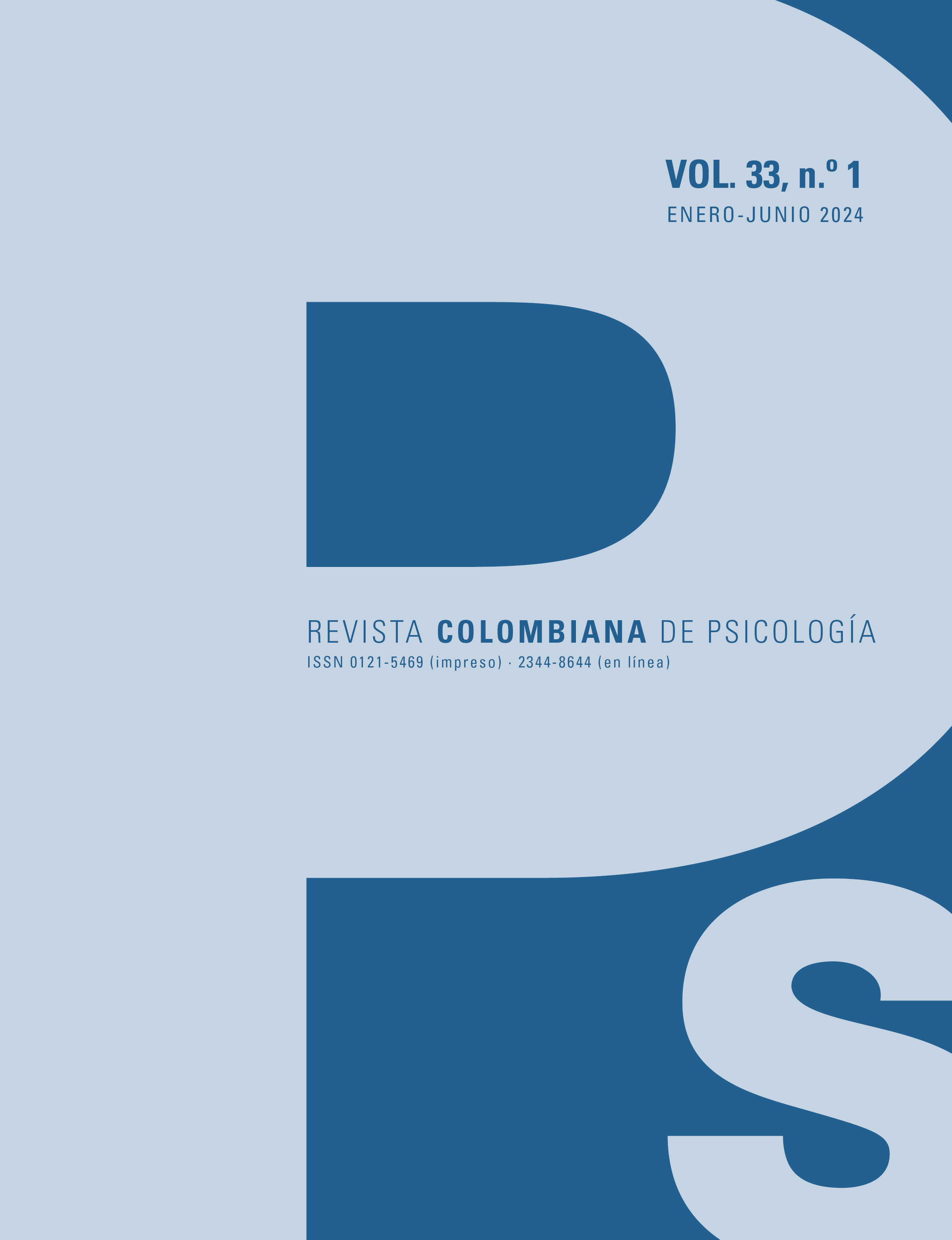Career Satisfaction as a Retention Factor for Mozambican Adult educators
La Satisfacción Profesional Como Factor de Retención de los Educadores de Adultos Mozambiqueños
DOI:
https://doi.org/10.15446/rcp.v33n1.102224Keywords:
career satisfaction, human resource management, retention, adult educators (en)satisfacción profesional, gestión de recursos humanos, retención, educadores de adultos (es)
Downloads
The goal of our research is to analyze the career satisfaction as a retention factor of adult educators. A total of 25 interviews were conducted in Mozambique. The study adopted qualitative method, using grounded theory. The results found chronic problems in Mozambican Human Resource Management (HRM) Public Educational Sector. The difficulties in career development, training, and poor rewards are pointed as factors that affect adult career satisfaction. In addition, the career support, and financial incentives do not match with adult educators’ retention expectancy. The findings show the dissatisfaction of adult educators and consequently increase the turnover.
El objetivo de nuestra investigación es analizar la satisfacción profesional como factor de retención de los educadores de adultos. Se realizaron un total de 25 entrevistas en Mozambique. El estudio adoptó método cualitativo, utilizando la grounded theory. Los resultados encontraron problemas crónicos en la Gestión de Recursos Humanos (GRH) del sector educativo público de Mozambique. Las dificultades en el desarrollo de la carrera, la formación y las escasas recompensas se señalan como factores que afectan a la satisfacción profesional de los adultos. Además, el apoyo a la carrera profesional y los incentivos financieros no se corresponden con las expectativas de retención de los educadores de adultos. Los resultados muestran la insatisfacción de los educadores de adultos y, en consecuencia, la escasa retención.
References
Abacar, M., Aliante, G., & Nahia, I.A.A (2020). Fontes de estresse ocupacional estratégias de enfrentamento em professores moçambicanos do ensino básico. Saúde e Pesquisa, 13 (1), 41–52. https://doi.org/10.17765/2176-9206.2020v13n1p41-52
Africa Governance Monitoring and Advocacy Project (AFRIMAP) (2012). A Prestação efectiva de serviços públicos no sector da educação de Moçambique. Johanesburgo: AFRIMAP.
Alves, M.G., Azevedo N.R., & Gonçalves T.N.R. (2014). Satisfação e situação profissional: um estudo com professores nos primeiros anos de carreira. Educação & Pesquisa, 40 (2), 365–382. https://doi.org/10.1590/S1517-97022014005000002
Alshmemri, M., Shahwan-Akl, L., & Maude, P. (2017). Herzberg’s Two-Factor Theory. Life Science Journal 14 (5), 12-16. https://www.lifesciencesite.com/lsj/life140517/03_32120lsj140517_12_16.pdf
Armstrong, M. (2006). Human resource management practice, 10th ed. Kogan Page Limited.
Aspers, P., & Corte, U. (2019). What is Qualitative in Qualitative Research. Qualitative Sociology, 42 (2),139–160. https://doi.org/10.1007/s11133-019-9413-7
Araoz, E.G.E., & Ramos, N.A.G. (2021). Satisfacción laboral y compromiso organizacional en docentes de la amazonía peruana. Educação & Formação, 6 (1), 38-54. https://doi.org/10.25053/redufor.v6i1.3854
Austin, Z., & Sutton, J. (2014). Qualitative Research: Getting Started. The canadian journal of hospital pharmacy, 67(6), 436–440. https://doi.org/10.4212/cjhp.v67i6.1406
Baruch, Y. (2006). Career development in organizations and beyond: Balancing traditional and contemporary viewpoints. Human Resource Management Review, 16 (2), 125-138. https://doi.org/10.1016/j.hrmr.2006.03.002
Bagdadli, S., & Gianecchini, M. (2019). Organizational career management practices and objective career success: A systematic review and framework. Human Resource Management Review, 29 (3), 353–370. https://doi.org/10.1016/j.hrmr.2018.08.001
Bakotić, D. (2016) Relationship between job satisfaction and organisational performance. Economic Research, 29 (1), 118–130. https://doi.org/10.1080/1331677X.2016.1163946
Bennell, P., & Akyeampong, K. (2007). Teacher Motivation in Sub-Saharan Africa and South Asia. Department for International Development (DFID). Educational Papers, 71 (92), 1–91. https://assets.publishing.service.gov.uk/media/57a08be640f0b652dd000f9a/ResearchingtheIssuesNo71.pdf
Bonneton, D., Schworm, S.K., Festing M., & MuratbekovaTouron M. (2022). Do global talent management programs help to retain talent? A career-related framework. International Journal of Human Resource Management, 33 (2), 203–238. https://doi.org/10.1080/09585192.2019.1683048
Borman, G.D., & Dowling. N.M. (2008). Teacher Attrition and Retention: A Meta-Analytic and Narrative Review of the Research. Review of Educational Research, 78 (3), 367–409. https://doi.org/10.3102/0034654308321455
Busetto, L., Wick., W., & Gumbinger, C. (2020) How to use and assess qualitative research methods. Neurological Research and Practice, 2 (14), 1-10. https://doi.org/10.1186/s42466-020-00059-z
Bengtsson, M. (2016). How to plan and perform a qualitative study using content analysis. NursingPlus Open, 2, 8–14. https://doi.org/10.1016/j.npls.2016.01.001
Campo-Redondo, M. (2021). Concepción de la Psicoterapia. Aproximación Cualitativa desde la Teoría Fundamentada. Revista Colombiana de Psicología, 30 (1), 47-61. https://doi.org/10.15446/rcp.v30n1.78535
Cardoso, C.G.L.V., & Costa, N.M.S.C. (2016). Fatores de satisfação e insatisfação profissional de docentes de nutrição. Ciência & Saúde Coletiva, 21 (8), 2357–2364. https://doi.org/10.1590/1413-8123201521803862016
Cuenya, L. and Ruetti, E. (2010). Controversias epistemológicas y metodológicas entre el paradigma cualitativo y cuantitativo en psicología. Revista Colombiana de Psicología, 19 (2), 271–277. https://revistas.unal.edu.co/index.php/psicologia/article/view/17795
Chapman, D.W. (1983). A Model of the Influences on Teacher Retention. Journal of Teacher Education,34(5), 43–49. https://doi.org/10.1177/002248718303400512
Creswell, J.W. (2009) Research design: Qualitative, quantitative, and mixed methods approaches. 4th ed. Sage Publications.
Demetrion, G. (1997). Student goals and public outcomes: The contribution of adult literacy education to the public good. Adult basic education, 7 (3), 145–164. https://www.academia.edu/5494121/Student_Goals_and_Public_Outcomes_The_Contribution_of_Adult_Literacy_Education_to_the_Public_Good
Duan, X., Du, X., & Yu, K. (2018). School Culture and School Effectiveness: The Mediating Effect of Teachers’ Job Satisfaction. International Journal of Learning, Teaching and Educational Research. 17 (5), 15–25. https://doi.org/10.26803/ijlter.17.5.2
Eisenberger, R., Fasolo, P., & Davis-LaMastro, V. (1990). Perceived organizational support and employee diligence, commitment, and innovation. Journal of Applied Psychology, 75 (1), 51–59. https://doi.org/10.1037/0021-9010.75.1.51
Fullan, M. (2009). The New Meaning of Educational Change. 4th ed. Teachers College Press.
Guest, G., Namey, E., & Chen, M. (2020). A simple method to assess and report thematic saturation in qualitative research. PLoS ONE 15 (5), 1-17. https://doi.org/10.1371/journal.pone.0232076
Goodman, D., French, P.E., & Battaglio, R.P. (2015). Determinants of Local Government Workforce Planning. The American Review of Public Administration, 45 (2),135–152. https://doi.org/10.1177/0275074013486179
Han J., & Yin H. (2016). Teacher motivation: Definition, research development and implications for teachers. Cogent Education, 3 (1), 1-18. https://doi.org/10.1080/2331186X.2016.1217819
Hansen, N. K., Güttel, W. H. & Swart, J. (2017): HRM in dynamic environments: Exploitative, exploratory, and ambidextrous HRM architectures. The International Journal of Human Resource Management, 30 (4), 648- 679. https://doi.org/10.1080/09585192.2016.1270985
Harsch, K., & Festing M. (2020). Dynamic talent management capabilities and organizational agility-A qualitative exploration. Human Resource Management, 59 (1), 43–61. https://doi.org/10.1002/hrm.21972
Hennink, M., & Kaiser, B. N., (2022) Sample sizes for saturation in qualitative research: A systematic review of empirical tests. Social Science & Medicine 292, 1-10. https://doi.org/10.1016/j.socscimed.2021.114523
Hsieh, H.F., & Shannon, S. E. (2005). Three Approaches to Qualitative Content Analysis. Qualitative Health Research, 15 (9), 1277–1288. https://doi.org/10.1177/1049732305276687
Hurst, J.L., & Good, L.K. (2009). Generation Y and career choice: The impact of retail career perceptions, expectations and entitlement perceptions. Career Development International, 14 (6), 570–593. https://doi.org/10.1108/13620430910997303
Hur, Y. (2017). Testing Herzberg’s Two-Factor Theory of Motivation in the Public Sector: Is it Applicable to Public Managers?. Public Organization Review 18, 329–343. https://doi.org/10.1007/s11115-017-0379-1
Islam, A. M., & Aldaihani, F. M. F. (2022). Justification for Adopting Qualitative Research Method, Research Approaches, Sampling Strategy, Sample Size, Interview Method, Saturation, and Data Analysis. Journal of International Business and Management 5 (1), 1-11. https://doi.org/10.37227/JIBM-2021-09-1494
Itasanmi, S., & Akintolu M., Oni, M.T. (2021). Adult Literacy Facilitators’ Job Satisfaction in Nigeria and South Africa. African Journal of Teacher Education, 10 (1), 325–345. https://doi.org/10.21083/ajote.v10i1.6145
Juliasse, A.C.N. (2021). Alfabetização de jovens e adultos: do discurso de combate à pobreza socioeconômica a políticas curriculares. Praxis Educativa, 16, 1–13. https://doi.org/10.5212/PraxEduc.v.16.16809.051
Kachhawa, P.S., Joshi A., & Gajraj A. (2018). An assessment of teacher’s job satisfaction and its possible effects on student achievements. Indian journal of positive psychology, 9 (1), 152-154. https://doi.org/10.15614/ijpp.v9i01.11762
Kong, H., Okumus F., & Bu, N. (2020). Linking organizational career management with Generation Y employees’ organizational identity: The mediating effect of meeting career expectations. Journal of Hospitality Marketing & Management, 29 (2),164–181. https://doi.org/10.1080/19368623.2019.1616644
Koustelios, A., & Tsigilis N. (2005). The relationship between burnout and job satisfaction among physical education teachers: a multivariate approach. European Physical Education Review, 11 (2), 189–203. https://doi.org/10.1177/1356336X05052896
Linden, J. V. D. (2005). A alfabetização é importante para se ser alguém: percepções de programas de alfabetização de adultos em Moçambique. Revista de Alfabetização Solidária, 5 (5), 25–40. https://www.catedraunescoeja.com.br/documento/2aeedb541b8f970773ad5a9b5f688267291441.pdf
Long, J.S., McKenzie-Robblee, S., Schaefer, L., Steeves, P., Wnuk, S., & Pinnegar, E. (2012). Literature Review on Induction and Mentoring Related to Early Career Teacher Attrition and Retention. Mentoring & Tutoring: Partnership in Learning. 20 (1), 7–26. https://doi.org/10.1080/13611267.2012.645598
Luís, R. (2012). Ensino e Educação de Jovens e Adultos em Moçambique. Open Society Initiative for Southern Africa (OSISA).
Manuel, A., Popov, O. (2016). The challenges of adult education policy implementation in Mozambique. Problems of Education in the 21st Century, 71(53), 53–61. https://doi.org/10.33225/pec/16.71.53
Manuel A., Van Der Linden, J. & Popov, O. (2017). Educators in non-formal vocational education and training in Mozambique: a plea for recognition and professionalisation. International Journal of Lifelong Education, 36 (3), 324–338. https://doi.org/10.1080/02601370.2016.1241311
Marqueze, E. C., & Moreno C. R. C. (2005). Satisfação no trabalho - uma breve revisão. Revista Brasileira de Saúde Ocupacional, 30 (112), 69–79. https://doi.org/10.1590/S0303-76572005000200007
Mário, N., & Nandja, D. A. (2005). Alfabetização em Moçambique: desafios da educação para todos. Paper commissioned for the EFA Global Monitoring Report 2006, Literacy for Life. https://unesdoc.unesco.org/ark:/48223/pf0000146284
Ministry of Education and Human Development (MINEDH) (2020). Strategic Education Plan 2020-2029. Maputo.
Noble, H., & Mitchell, G. (2016). What is grounded theory? Evidence-based nursing, 19 (2), 34–35. https://doi.org/10.1136/eb-2016-102306
Nugroho, D., & Karamperidou, D. (2021). Teacher attendance and time on task in primary schools in Mozambique. Unicef Office of Research. https:// www.unicef-irc.org/publications/1210-time-to-teachteacher-attendance-and-time-on-task-in-primaryschools-mozambique.html
Oliveira, L.B, Cavazotte F., & Alan Dunzer R. (2019). The interactive effects of organizational and leadership career management support on job satisfaction and turnover intention. International Journal of Human Resourse Management, 30 (10), 1583–603. https://doi.org/10.1080/09585192.2017.1298650
Pacheco, J.A. (2000). Políticas curriculares descentralizadas: autonomia ou recentralização? Educação & Sociedade, 21 (73), 139–61. https://doi.org/10.1590/S0101-73302000000400010
Pathak, V., Jena, B., & Kalra, S. (2013). Qualitative research. Perspectives in clinical research, 4(3), 192. https://doi.org/10.4103/2229-3485.115389
Rhoades, L., & Eisenberger, R. (2002). Perceived organizational support: A review of the literature. Journal of Applied Psychology, 87 (4), 698–714. https://doi.org/10.1037/0021-9010.87.4.698
Rungo, R. (2005). Necessidades básicas de aprendizagem na alfabetização de adultos: estudo de dois casos no distrito de Marracuene. Revista de Alfabetização Solidária, 5 (5), 5–15. https://www.catedraunescoeja.com.br/documento/2aeedb541b8f970773ad5a9b5f688267291441.pdf
Rossi, F., & Hunger, D. (2012). As etapas da carreira docente e o processo de formação continuada de professores de Educação Física. Revista Brasileira de Educação Física e Esporte, 26 (2), 323–338. https://doi.org/10.1590/S1807-55092012000200014
Saha, N., Gregar, A., & Saha, P. (2017). Organizational agility and HRM strategy: Do they really enhance firms’ competitiveness? International Journal of Organizational Leadership, 6 (3), 323-334. https://ijol.cikd.ca/article_60454_26cad367867aec5f7b25f7 f0e7944e93.pdf. DOI: https://doi.org/10.33844/ijol.2017.60454
Schaefer, L., Long, J.S., & Clandinin, D.J. (2012). Questioning the Research on Early Career Teacher Attrition and Retention.Alberta Journal of Educational Research, 106-121. https://doi.org/10.11575/ajer.v58i1.55559
Saunders, B., Sim, J., Kingstone, T., Baker, S., Waterfield, J., Bartlam, B., Burroughs, H., & Jinks, C. (2018). Saturation in qualitative research: exploring its conceptualization and operationalization. Quality & Quantity, 52(4), p. 1893–1907. https://doi.org/10.1007/s11135-017-0574-8
Sebele-Mpofu, F. Y. (2020). Saturation controversy in qualitative research: Complexities and underlying assumptions. A literature review. Cogent Social Sciences, 6 (1), p. 1-17. https://doi.org/10.1080/23311886.2020.1838706
See, B.H., Morris, R., Gorard, S., Kokotsaki, D., & Abdi, S. (2020). Teacher Recruitment and Retention: A Critical Review of International Evidence of Most Promising Interventions. Education Sciences, 10 (10), 1-45. https://doi.org/10.3390/educsci10100262
Shah, M. J., Rehman, M. U., Akhtar, G., Zafar, H., & Riaz, A. (2012). Job Satisfaction and Motivation of Teachers of Public Educational Institutions. International Journal of Business and Social Science, 3 (8), 271–281. http://www.ijbssnet.com/journals/Vol_3_No_8_Special_Issue_April_2012/31.pdf
Shen J. (1997). Teacher Retention and Attrition in Public Schools: Evidence From SASS91. Journal of Educational Research, 91(2), 81–88. https://doi.org/10.1080/00220679709597525
Shore, L.M., & Tetrick, L.E. (1991). A construct validity study of the Survey of Perceived Organizational Support.Journal of Applied Psychology,76(5), 637–643. https://doi.org/10.1037/0021-9010.76.5.637
Simione, A.A. (2019). Gestão Estratégica de Recursos Humanos: já se pode falar dela na Administração Pública em Moçambique? Revista Foco, 12 (3), 138–168. https://ojs.focopublicacoes.com.br/foco/article/view/21/15 DOI: https://doi.org/10.28950/1981-223x_revistafocoadm/2019.v12i3.700
Zoller, K., & Bacskai, K. (2020). Teacher Work and Job Satisfaction among Romanian Lower Secondary Teachers. Central European Journal of Educational Research, 2(2), 93–100. https://doi.org/10.37441/CEJER/2020/2/2/7918
How to Cite
APA
ACM
ACS
ABNT
Chicago
Harvard
IEEE
MLA
Turabian
Vancouver
Download Citation
License

This work is licensed under a Creative Commons Attribution-NonCommercial-NoDerivatives 4.0 International License.
The RCP is published under the Creative Commons license and can be copied and reproduced according to the conditions of this license (http://creativecommons.org/licenses/by-nc-nd/2.5). RCP articles are available online at https://revistas.unal.edu.co/index.php/psicologia/issue/archive. If you would like to subscribe to the RCP as reader, please go to https://revistas.unal.edu.co/index.php/psicologia/information/readers and follow the instructions mentioned in the webpage. Additionally, a limited number of print journals are available upon request. To request print copies, please email revpsico_fchbog@unal.edu.co.


























